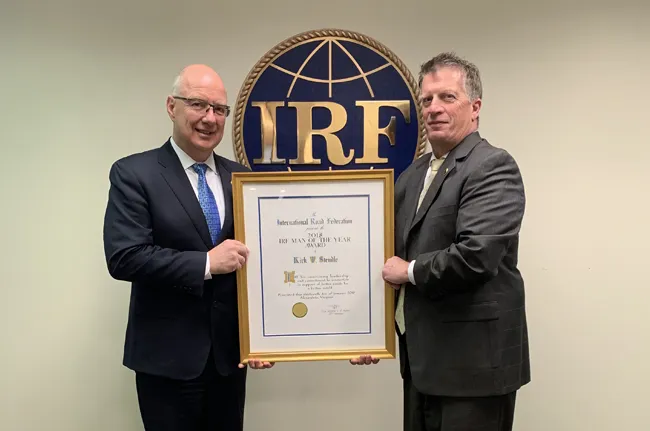US Transportation and Infrastructure Committee Chairman John L. Mica (R-FL) announced recently that House and Senate conferees are concluding a bicameral, bipartisan agreement on a major transportation bill. The measure focuses on unprecedented reforms by cutting red tape and consolidating federal transportation programmes. The tentative agreement establishes federal highway, transit and highway safety policy and keeps programmes at current funding levels through the end of fiscal year 2014. Unlike the last
June 29, 2012
Read time: 2 mins
US Transportation and Infrastructure Committee Chairman John L. Mica (R-FL) announced recently that House and Senate conferees are concluding a bicameral, bipartisan agreement on a major transportation bill. The measure focuses on unprecedented reforms by cutting red tape and consolidating federal transportation programmes.
The tentative agreement establishes federal highway, transit and highway safety policy and keeps programmes at current funding levels through the end of fiscal year 2014. Unlike the last transportation bill, which contained over 6,300 earmarks, this bill doesn’t include any earmarks, nor does it increase taxes.
“This is the jobs bill for the 112th Congress,” Mica stated. “The unprecedented reforms in this legislation – cutting red tape, truly making projects ‘shovel ready,’ shrinking the size of the federal bureaucracy, attracting more private sector participation, and giving states more flexibility to address their critical priorities – will ensure that we more effectively move forward with major highway and bridge improvements and put Americans back to work.
“The Highway Trust Fund is going bankrupt, and this paid-for measure provides necessary, real reform that focuses our limited resources on critical infrastructure needs. This legislation is specifically designed to reform and consolidate our transportation programmes, streamline the bureaucratic project process, and give states more flexibility to save taxpayers’ hard-earned money,” Mica said.
If a majority of House and Senate conferees approve the conference report, both bodies are then expected to take up the measure before the end of the week, prior to the expiration of the current extension of transportation funding on June 30th.
The tentative agreement establishes federal highway, transit and highway safety policy and keeps programmes at current funding levels through the end of fiscal year 2014. Unlike the last transportation bill, which contained over 6,300 earmarks, this bill doesn’t include any earmarks, nor does it increase taxes.
“This is the jobs bill for the 112th Congress,” Mica stated. “The unprecedented reforms in this legislation – cutting red tape, truly making projects ‘shovel ready,’ shrinking the size of the federal bureaucracy, attracting more private sector participation, and giving states more flexibility to address their critical priorities – will ensure that we more effectively move forward with major highway and bridge improvements and put Americans back to work.
“The Highway Trust Fund is going bankrupt, and this paid-for measure provides necessary, real reform that focuses our limited resources on critical infrastructure needs. This legislation is specifically designed to reform and consolidate our transportation programmes, streamline the bureaucratic project process, and give states more flexibility to save taxpayers’ hard-earned money,” Mica said.
If a majority of House and Senate conferees approve the conference report, both bodies are then expected to take up the measure before the end of the week, prior to the expiration of the current extension of transportation funding on June 30th.








